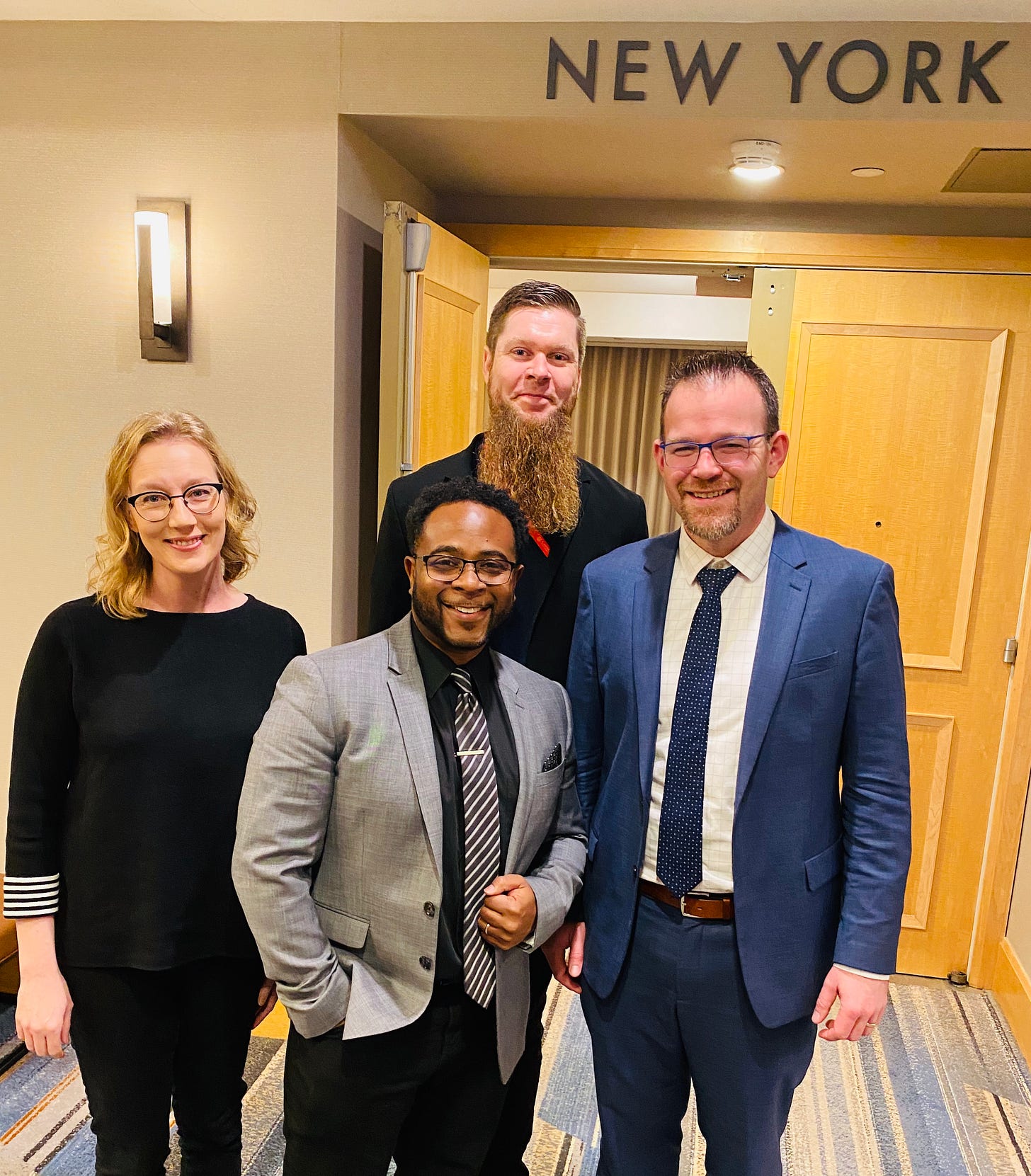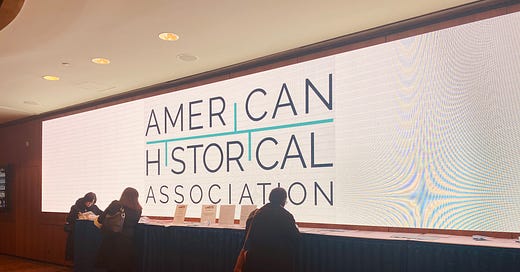Should Academics Educate for Activism?
Should academics use their scholarship to encourage their students to be activists?
Long ago, when we could publicly meet in large groups and a viral pandemic was not part of our collective trauma, I participated in a panel at the Conference on Faith and History (an affiliate section of the American Historical Association conference) in January 2020 in New York City.
The panel was called “Educating for Activism?: Historians & Politics in the Contemporary United States.”
My distinguished panelists included: Heath W. Carter (moderator, Princeton Theological Seminary), Beth Allison Barr (Baylor University), Kristin Kobes Du Mez (Calvin University), Phillipp Gollner (Goshen College), and Kathryn Lofton (Yale University).
People packed into a long conference room with padded chairs featuring uniformly patterned upholstery. The presenters sidled into seats at a too small rectangular table and tried to figure out whose glass of water belonged to whom.

The context of the entire event was the maelstrom of ethical issues raised by the actions of the Trump administration. From separating children from their parents at the border to massive tax cuts for the wealthiest business owners, the president and his supporters practically invited historians to use their knowledge of the past to address issues of current import.
The question amidst this backdrop was, “To what extent should historians as teachers and professors encourage their students to become activists for a particular cause?”
Apparently others were interested in the topic, too. We had an engaging time of presentation and a lengthy question and answer period.
The topic proved so popular and the treatments by the presenters so engaging, that someone proposed we collect and edit them for publication in a history journal.
After a months-long email chain (in which I was usually the weakest link) we finally got to see the final product.
The Winter 2020 issue of the Fides et Historia, the journal for the Conference on Faith and History, features each of the papers we presented at the conference.
I took the stance that scholars of African descent in the United States have not had the luxury or option of conducting our research purely for the academy. Our very survival could depend on how well we deploy our research to fight racism and white supremacy.
Below is an excerpt from my essay entitled, “Educating for Activism…with an Exclamation Point!”
You’re supposed to start reading at the beginning of a sentence, but my attention was immediately drawn to the end. I wasn’t even looking at a word. It was the punctuation that held my focus—a question mark.
The title of our forum was “Educating for Activism?” But why the question mark? Why the uncertainty and hesitancy? What part of educating for the purpose of activism forced the interrogative? Why not a simple declarative statement?
…
But for me education for activism has never been a question. I became a historian as a matter of necessity. After a white police officer killed an eighteen-year-old Black male named Mike Brown, Ferguson Missouri became the epicenter of a movement. The phrase “Black Lives Matter” crowded headlines and social media timelines. The nation watched unarmed protestors stand firm against a police force armed with gear more appropriate for a military campaign than for serving and protecting their own citizens.
…
Existing as a Black man in a society seeded with white supremacy means that instilling a sense of social responsibility in students is not only a matter of necessity but survival. The cascade of protests and uprisings during the summer of 2020 centered around ending anti-Black police brutality. The threat of becoming a victim of police violence is not some abstract intellectual issue for me; it is an existential reality with which I must daily contend. Amadou Diallo, Sean Bell, Oscar Grant, Eric Garner, John Crawford III, Tamir Rice, Philando Castile, and, of course, Mike Brown and George Floyd,—and these are just the males. They and countless more are the unarmed human beings who became hashtags due to little more than the color of their skin and the reflexive presumption of Black guilt.
…
For me as a historian, a Black man, and a conscientious citizen, educating for activism does not end with a question mark but an exclamation point. It is an emphatic proposition, and indispensable duty of the craft. I do not say that the only purpose of education is activism. Knowledge and the pursuit of truth are ennobling efforts in themselves. But we are living in an age of rapid change whose momentum will lead us either to an inclusive, multiracial democracy or fascist demagoguery. Our present realities persuade me that educating for activism is not an interruption of the academic mission but a critical component of it. In the end, the most pressing question is not whether to educate for activism but why some historians choose not to.





